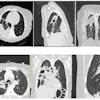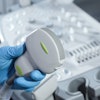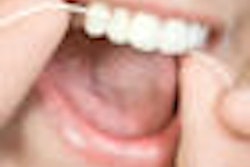Plaque-causing bacteria can escape from the mouth into the bloodstream and increase the risk of heart attack, according to research from the University of Bristol.
Howard Jenkinson, Ph.D., a professor of oral microbiology at Bristol's School of Oral and Dental Sciences, explained how oral bacteria can wreak havoc if they are not kept in check by regular brushing and flossing during a presentation at the Society for General Microbiology's fall meeting in Nottingham, U.K., on September 6.
"Poor dental hygiene can lead to bleeding gums, providing bacteria with an escape route into the bloodstream, where they can initiate blood clots leading to heart disease," Jenkinson said.
The University of Bristol researchers, in collaboration with scientists at the Royal College of Surgeons in Ireland, have shown that once let loose in the bloodstream, streptococcus bacteria can use a protein on their surface, called PadA, as a weapon to force platelets in the blood to bind together and form clots.
"We are currently investigating how the platelet-activating function of PadA can be blocked," Jenkinson said. "This could eventually lead to new treatments for cardiovascular disease, which is the biggest killer in the developed world."
Jenkinson said the bacteria completely encase themselves in a clump of platelets, enabling them to avoid detection by the host immune system and to hide from antibiotics, his study found.
"Unfortunately, as well as helping out the bacteria, platelet clumping can cause small blood clots, growths on the heart valves (endocarditis), or inflammation of blood vessels that can block the blood supply to the heart and brain," he said.
Copyright © 2010 DrBicuspid.com



















